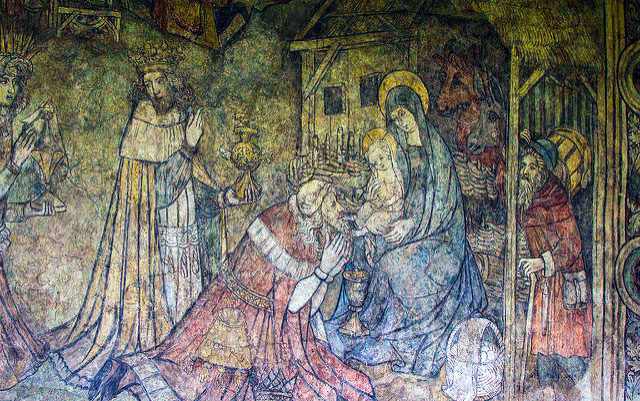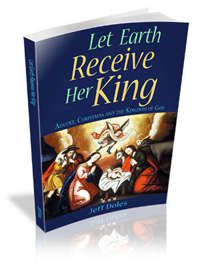God’s purpose for Israel was never just about the ethnic descendants of Abraham, Isaac and Jacob only but for all the nations and families of the earth, as the poets and prophets of the Old Testament well understood. This understanding was heightened considerably in the New Testament, to such an extent that Paul considered it a mystery revealed in the gospel.
May his name endure forever; may it continue as long as the sun. Then all nations will be blessed through him, and they will call him blessed. (Psalm 72:17)In the end, the full number of the Gentiles will be grafted in and all Israel will be saved. All the world will know the salvation God brings, and God himself will say of each of us, “This one was born in Zion.”
I will record Rahab and Babylon among those who acknowledge me — Philistia too, and Tyre, along with Cush — and will say, “This one was born in Zion.” (Psalm 87:4)
Praise the LORD, all you nations; extol him, all you peoples. For great is his love toward us, and the faithfulness of the LORD endures forever. Praise the LORD. (Psalm 117)
In the last days the mountain of the LORD’s temple will be established as the highest of the mountains; it will be exalted above the hills, and all nations will stream to it. Many peoples will come and say, “Come, let us go up to the mountain of the LORD, to the temple of the God of Jacob. He will teach us his ways, so that we may walk in his paths.” (Isaiah 2:2-3)
They will neither harm nor destroy on all my holy mountain, for the earth will be filled with the knowledge of the LORD as the waters cover the sea. In that day the Root of Jesse will stand as a banner for the peoples; the nations will rally to him, and his resting place will be glorious. (Isaiah 11:9-10)
The LORD will lay bare his holy arm in the sight of all the nations, and all the ends of the earth will see the salvation of our God. (Isaiah 52:10)
This is what the LORD Almighty says: “Many peoples and the inhabitants of many cities will yet come, and the inhabitants of one city will go to another and say, ‘Let us go at once to entreat the LORD and seek the LORD Almighty. I myself am going.’ And many peoples and powerful nations will come to Jerusalem to seek the LORD Almighty and to entreat him.”
This is what the LORD Almighty says: “In those days ten people from all languages and nations will take firm hold of one Jew by the hem of his robe and say, ‘Let us go with you, because we have heard that God is with you.’” (Zechariah 8:20-23)
Truly I tell you, I have not found anyone in Israel with such great faith. I say to you that many will come from the east and the west, and will take their places at the feast with Abraham, Isaac and Jacob in the kingdom of heaven. (Matthew 8:10-11)
Israel has experienced a hardening in part until the full number of the Gentiles has come in, and in this way all Israel will be saved. (Romans 11:25-26)
For I tell you that Christ has become a servant of the Jews on behalf of God’s truth, so that the promises made to the patriarchs might be confirmed and, moreover, that the Gentiles might glorify God for his mercy. As it is written: “Therefore I will praise you among the Gentiles; I will sing the praises of your name.” Again, it says, “Rejoice, you Gentiles, with his people.” And again, “Praise the Lord, all you Gentiles; let all the peoples extol him.” And again, Isaiah says, “The Root of Jesse will spring up, one who will arise to rule over the nations; in him the Gentiles will hope.” (Romans 15:8-12, citing Psalm 18:49; Deuteronomy 32:43; Psalm 117:1; Isaiah 11:10)
I have become its servant by the commission God gave me to present to you the word of God in its fullness — the mystery that has been kept hidden for ages and generations, but is now disclosed to the Lord’s people. To them God has chosen to make known among the Gentiles the glorious riches of this mystery, which is Christ in you, the hope of glory. (Colossians 1:25-27)
For this reason I, Paul, the prisoner of Christ Jesus for the sake of you Gentiles — Surely you have heard about the administration of God’s grace that was given to me for you, that is, the mystery made known to me by revelation, as I have already written briefly. In reading this, then, you will be able to understand my insight into the mystery of Christ, which was not made known to people in other generations as it has now been revealed by the Spirit to God’s holy apostles and prophets. This mystery is that through the gospel the Gentiles are heirs together with Israel, members together of one body, and sharers together in the promise in Christ Jesus. (Ephesians 3:1-6)
The city does not need the sun or the moon to shine on it, for the glory of God gives it light, and the Lamb is its lamp. The nations will walk by its light, and the kings of the earth will bring their splendor into it. On no day will its gates ever be shut, for there will be no night there. The glory and honor of the nations will be brought into it. (Revelation 21:23-26)






